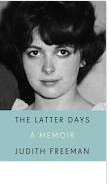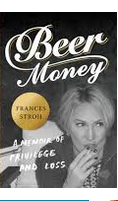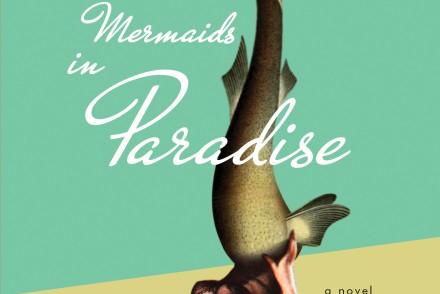by Alexandra Bowie
This post reviews two different memoirs by women from very different parts of the country and very different backgrounds. The books share common themes of family and money.
 “The Latter Days” a Memoir by Judith Freeman
“The Latter Days” a Memoir by Judith Freeman
Judy Freeman grew up in Ogden, Utah, one of eight children of a hard-working Mormon couple, cocooned in a wholesome but rigid community. Mormons famously don’t drink alcohol or coffee, and don’t smoke, but the ethos of this American-formed religion shelters some concerns: minimal roles for women and a history, disavowed but not entirely forgotten, of polygamy. Freeman was a tomboy, whose father could be angry and frustrated, and often punished whichever kid was nearest, regardless of who (if anyone) was at fault. Her mother was loving but distracted, what with all the kids.
Freeman didn’t question her background growing up though she reports ignoring many of the lessons – she smoked cigarettes, she drank, she made out with boys. One of her chief pleasures as a young adolescent was riding her horse up into the foothills on the edge of town with a group of friends. Freeman tried to fit in – she includes a moving chapter about a notebook she kept from a high school church-related course, in which she wrote about her efforts to comply with Mormon norms. You must try, her (older, male) teacher kept telling her. Since Freeman was writing about whether she enjoyed kissing boys too much one wonders, now, what prurient interest he might have had in his young female charges.
Freeman married at 17, and despite having the gumption to insist on a prescription for birth control pills didn’t like how they made her feel, took them inconsistently, and wound up pregnant. She and her husband gave up their plans to join the Peace Corps. But the baby also helped them with plans that might have been inchoate, to leave Utah and the church. He was born with a heart defect, and needed complex and advanced surgery that could be performed either in Texas or Minnesota. Freeman and her husband chose Minnesota, where her husband entered graduate school. And they became dorm parents at Macalester College in St. Paul.
Contact with the students at Macalester, and the classes she was able to attend – it was Freeman’s first experience of college – and an affair with her son’s surgeon combined to turn her life in an entirely different direction. Divorce at first forced Freeman home, but she didn’t stay.
 “Beer Money: A Memoir of Privilege and Loss” by Frances Stroh
“Beer Money: A Memoir of Privilege and Loss” by Frances Stroh
Frances Stroh grew up in Grosse Point, Michigan, a child of privilege – her family founded and ran the Stroh’s beer company from the mid-1850s until it collapsed in the 1990s, after poor management decisions resulted in too much debt. She was one of four children and the only girl; her father was an alcoholic who’d never had to work much, and in Stroh’s description her mother was distracted. Her parents divorced when Stroh was just leaving high school.
Although Stroh’s father Eric went to work, the family lived on dividends, and Eric Stroh liked to spend his money on antiques and collections. Stroh describes Christmas at her father’s house after he was remarried to a much younger woman:
Beautiful objects adorned every surface in the room: an antique partners desk stood in a bay window with a gilt-framed painting by Gari Melchers on the adjacent wall. Tasteful patterned fabrics covered the upholstered furniture. Eighteenth-century walnut side tables held needlepoint coasters for drinks. The tree sparkled with old family ornaments and colored lights…
Stroh and her brothers had just come from a meeting with the family’s attorney, who told them that their father’s remarriage, made without a prenuptial agreement, had in effect disinherited them. One brother spiraled into drug addiction and an early death; the other two appear to have stable lives.
As for Stroh herself: she married, had a son, divorced, and became first an artist and then a writer. And an investor: after that meeting fear made her take a hard look at her life, and she realized then that the only person she could depend on was herself. She writes, “Striving for something gives life its meaning, regardless of whether we succeed or fail. The problem was, my father had never had to strive for anything.”
Both books are skillfully written, and reading them close together reinforces several ideas: too much money is almost as much of a problem as too little. Children need their parents, but not all the time – the trick for parents, harder now than in the 50s, 60s and 70s, is knowing when to pay attention and when to let children figure things out for themselves – even at the risk of failure. Both women take deep and honest looks at their younger selves and the sometimes poor choices they made. That both found the resiliency to find their very different voices is a gift to readers.
Have a book you want me to know about? Email me at asbowie@gmail.com. Follow me on Twitter @abowie917.



